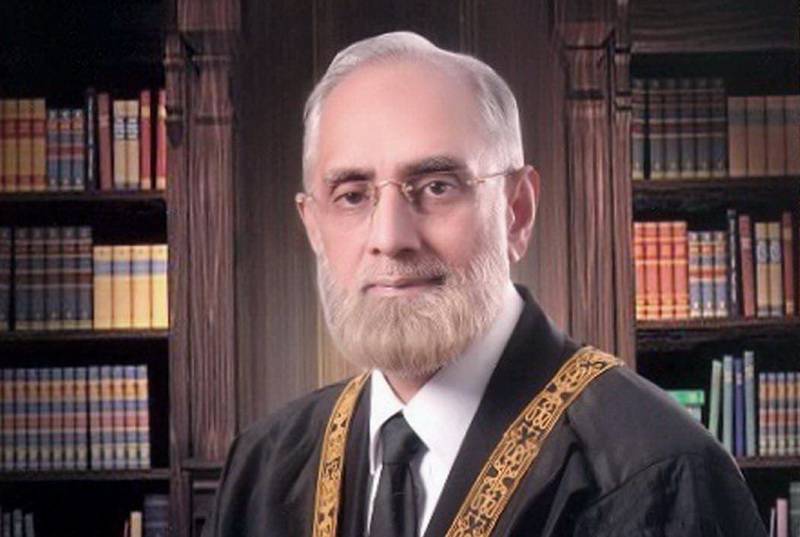Mr. Justice Anwar Zaheer Jamali, whose stint is set to end on the 31st of December, succeeded Mr. Justice Jawwad S Khawaja, as the 24th Chief Justice of Pakistan. Obviously, anybody with a turn after Justice Khawaja as the presiding officer of the apex court, would be seen as a weak top judge, not because of their own traits or frailty, rather, because nobody would expect the volume of Justice Khawaja's judicial activism to be even closed up on, let alone levelled, for years to come.
But, Justice Jamali was different.
He was one the judges who refused to take fresh oath under Gen Pervez Musharraf’s, unconstitutional and illegal, Provisional Constitution Order in 2007. Once the independent judiciary was restored, he directly took reigns as the Chief Justice of the Sindh High Court, and was elevated to the Supreme Court in 2009.
There were expectations. People looked towards the Supreme Court in general and Juctice Jamali in particular; veritable to say, he did not come up to those expectations.
While he was always quick to comment, remark, opine, criticize and observe, there was a colossus lack of judgments, decisions, orders, declarations and verdicts to go by about it.
The Chief Justice took suo-motu of the provisions of the NAB Ordinance 1999 on plea-bargain, specifically Section 25(a) of the Ordinance. This, the court observed, was in conflict with the constitution. In fact in September, the Chief Justice had some harsh words:
“If this law is allowed to prevail then the country’s jails can be emptied; any thief from whom money is procured should not only be freed but also thanked.”
Despite such strong observations, the Chief Justice did not strike down the law. In fact, the incongruity between the talk and the action became as perspicuous as it could, when NAB struck a plea-bargain deal with ex- Finance Secretary of Balochistan Mushtaq Raisani for PKR 2bn, when it itself put the figure off the skimmed of money at about PKR 40bn.
A similar diegesis occurred with the Panamagate petitions. On the 1st of November, the Chief Justice took him upon himself to declare that the petitions would be heard on a day by day basis.
On the second last hearing of the case, the Chief Justice asserted that:
''FBR, NAB and FIA did not play their part and if state institutions fail to play their due role, they should rather be shut down.''
Alas, neither these institutions played their part, nor were they shut down. In fact, at the last date of hearing, the Chief Justice adjourned the matter to the first week of January, a bench he would not be on. This was least surprising, the real shocker hit when he declared that the case will not be treated as 'part-heard', or in layman terms; the case will now start again from square one.
In fact, way before his retirement, in May, he paid a trip to Muzzafarabad. Here too, the Chief Justice spoke of the evils of corruption, incompetency and lack of self accountability. Adding onto these issues, he opined that peace was not possible in the country without a coherent judicial system and proper legal education for the judges. Any action in acquiescence of these opinions are lacking obliviously.
The spiel continued, also with the case on the population census. The Chief Justice had questioned:
“Why is that the situation goes to the extent where the court has to hear the implementation cases?"
But alas, this case fell down the same pit. A matter to be heard by a new bench, a new Chief Justice.
At the dawn of the full court reference in honor of the outgoing Chief Justice, he declared that corruption was rampant within national institutions. Can we not then ask, what the Chief Justice had done to cope with it?
Unfortunately, I have no option but to agree with Ahmed Ali Kurd wherein he said that the era of Chief Justice Jamali cannot be praised. It was an era of all talk and no action.






